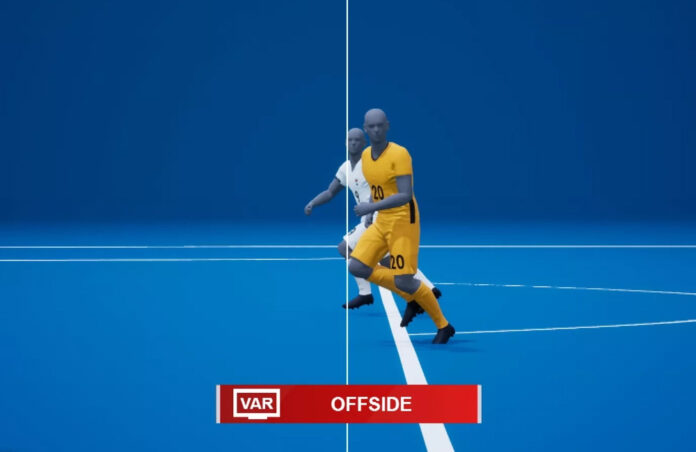Whether or not technology is helping improve our beautiful game is very much up for debate, but love it or loathe it, tech is going to play a prominent part in this year’s World Cup.
FIFA has announced that semi-automated offside technology will make its debut at football’s highest-profile international tournament, following successful trials at recent events, including 2021’s FIFA Arab Cup and Club World Cup.
The decision to shift the technology onto the biggest stage suggests semi-automated offside is viewed as a crucial means of eliminating erroneous offside calls; something that existing VAR replays have struggled to do.
Promising “faster, more accurate and more reproducible offside decisions on the biggest stage of all,” the technology employs 12 dedicated tracking cameras mounted beneath the roof of each stadium. Working in unison with a 500Hz inertial measurement unit (IMU) sensor within the Adidas match ball, the cameras are able to track the ball and 29 data points on each individual player up to 50 times per second.
Said data points include “all limbs and extremities,” and all player and ball data is processed in real-time by artificial intelligence. With ball data captured 500 times per second, FIFA hopes to deliver offside rulings that are free of ambiguity.
Quicker decision making is another key advantage. Though semi-automated offside technology is designed only as a support tool for on-field officials – referees are still responsible for the final decision – video match officials will be able to validate proposed rulings by “manually checking the automatically selected kick point and the automatically created offside line,” a process that is claimed to take a matter of seconds.
Helping assist viewers who are often left hanging during lengthy VAR checks, the new tech will also be used to generate 3D animations that will be played both via broadcast and within stadiums to clarify decisions in “the clearest possible way.”
Commenting on the announcement, Pierluigi Collina, chairman of the FIFA Referees Committee, said “VAR has already had a very positive impact on football and we can see that the number of major mistakes has already been dramatically reduced.”
“We expect that semi-automated offside technology can take us a step further. We are aware that sometimes the process to check a possible offside takes too long, especially when the offside incident is very tight. This is where semi-automated offside technology comes in – to offer faster and more accurate decisions.”
Though we’re intrigued to see the tech in action, the road to the 2022 Qatar World Cup has not been without controversy. Calls to boycott the tournament have grown louder in response to human rights issues and Qatar’s stance on homosexuality, which remains illegal in the host nation. The 2022 World Cup will also take place in winter, as opposed to a traditional summer schedule, in order to avoid Qatar’s notoriously hot climate.
The opening match, on November 21, will see Senegal face the Netherlands at Al Thumama Stadium, Doha.


